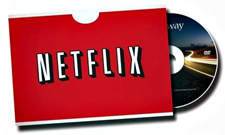Last year's ill-handled moves by Netflix regarding subscriber options may, in the long run, prove to have been quite the shrewd plays, depending on which customer metrics one examines.
 When Netflix first announced plans to separate its DVDs-by-mail from its streaming video business – and raise fees for customers who wanted both options – customers were furious. Around 810,000 of them canceled their subscriptions, exceeding the 600,000 the company had expected to lose. At the end of third-quarter 2011, in which Netflix made its announcement, its total U.S. subscriber base stood at just under 23.8 million, down from 24.6 million.
When Netflix first announced plans to separate its DVDs-by-mail from its streaming video business – and raise fees for customers who wanted both options – customers were furious. Around 810,000 of them canceled their subscriptions, exceeding the 600,000 the company had expected to lose. At the end of third-quarter 2011, in which Netflix made its announcement, its total U.S. subscriber base stood at just under 23.8 million, down from 24.6 million.
But by then end of the fourth quarter, Netflix had added 610,000 customers to its U.S. subscriber base. The catch is that nearly all of those subscriptions are, at least initially, added within its "free subscriber" promotional category.
Netflix's practice of offering free trial subscriptions with the expectation they will convert is nothing new, and unless the boost is part of a massive trial-and-cancel bit of subterfuge on the part of consumers, the majority of these should become paid subscribers.
So was the mishandling of the service separation the public relations flub it initially seemed? "It's all about perceptions," says Geoff Wolf, executive VP of client services at J.Schmid, a multichannel marketing and creative agency. "We all know what the perception was when they pulled the trigger on that last year. The length that the perception lingers has more to do with the competitive landscape. The easier it is to buy that service somewhere else, the easier it is to retain a bitter edge."
But, Wolf notes, if the service isn't as easily obtainable, consumers do start to rationalize how much of a blow it was. "To the degree you can't replace that service, the perception becomes that [the company's actions] weren't so bad. And over time the bitterness softens."
Dollars Behind Netflix's Decisions
There are solid financial, if not reputational, reasons for Netflix doing what it did. As part of its quarterly financials, Netflix had released figures indicating a current DVD-by-mail subscriber generates around $15 in profit, while each streaming content customer accounts for $2.50. At first blush, this might indicate that Netflix's efforts to push streaming services were fiscally unwise.
CEO Reed Hastings refuted that notion during an earnings call. The marginal costs of adding one streaming customer are minimal, consisting primarily of tiny credit card and customer service fees, while a new DVD customer comes with a variety of variable costs, including postage and DVD fees. The profitability of a new streaming customer, Hastings says, is almost twice what it is for a new DVD subscriber.
As of the end of fourth-quarter 2011, the company reported 11.2 million DVD-only subscribers. According to Hastings, the company expects that figure to "decline steadily every quarter forever." He added that the company would continue to maintain service standards for them, but isn't planning any specific retention activities. The company anticipates a loss of 1.5 million DVD customers during the current quarter, with losses trailing off in subsequent quarters.
Netflix may be underestimating the challenge it faces here, at least with the customers who are DVD-only. According to Wolf, "there are studies that evaluate the effect of negative customer service on a customer's purchase behavior. And the overall finding in those studies is that there is a material loss of trust in a brand when a customer is done a disservice by the brand. To what degree does that decrease the lifetime value of that customer? The answer is, it does so significantly."
Wolf notes this would be more of a problem if Netflix intended on replacing lost DVD customers with other DVD customers. "If they replace them with more streaming customers, because of the lower acquisition and fulfillment costs, it's not as much of a financial blunder.
"But that doesn't address the perception question," he adds. "You may have [former DVD customers] who are now streaming, but I am going to guess they are edgy about their trust in Netflix, and they will be hypersensitive to any future service issues that come up."
There is a saving grace for Netflix: According to Wolf, "human nature is such that if enough time passes, people will forget." And as the speed of technology and media delivery increases, the amount of time people remember negative occurrences decreases, he adds.
As for the metrics that count – dollars – fourth quarter 2011 was healthy for Netflix. Even with the influx of free subscriptions, the company's domestic revenue jumped from $799.2 million to $846.6 million, and profit for this segment rose from $219.4 million (27.4% of revenue) to $245.9 million (29% of revenue).



